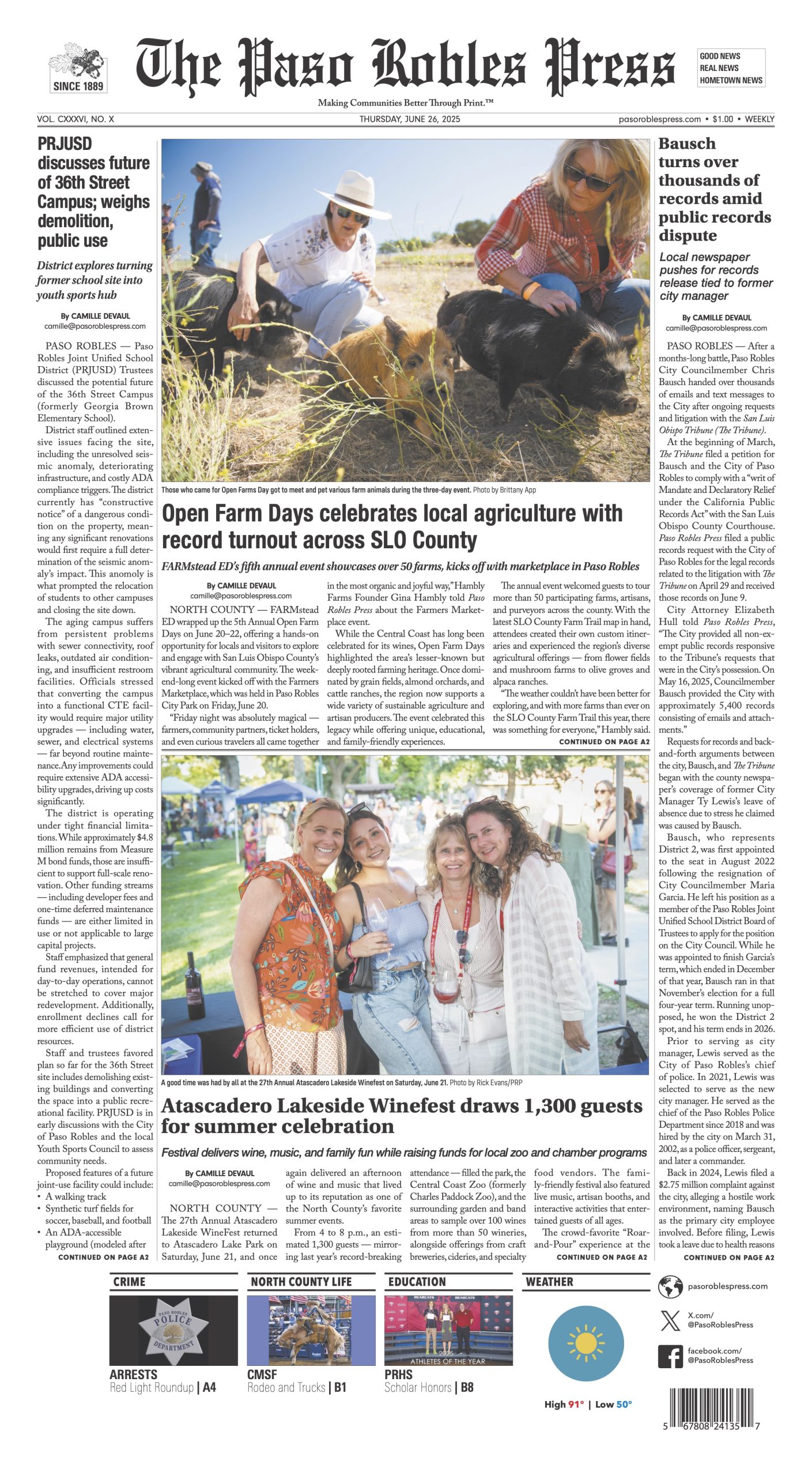TWO SOLDIERS SHARE REALITIES OF MILITARY SERVICE
Beyond waving flags, salutes and parades are the very real sacrifices of war.
Two men from two different generations and wars in Vietnam and Afghanistan describe briefly their post-combat experiences.
CHIP WILBURY — CALIFORNIA NATIONAL GUARD
Chip Wilbury trained deploying soldiers how to render first aid, but felt his
work would not be complete as a combat medic until he himself had seen battle,
so off he went — numerous times — and managed to return home safely.
“I have a recurring dream based on a real-life occurrence in Afghanistan — Matun Hill in Khost, 8 kilometers from Pakistan. I was the staff sergeant senior medic with the 870th MP’s from Pittsburg, California. This was my fifth deployment as a medic, my third deployment into combat from 2010 to 2011.
“The air raid sirens sound off in the middle of my very light, and sometimes troubled, sleep. Mortar rounds are coming in from outside our base, probably from the nearby hills. We can hear one or two whistles overhead as they pass. I’m thinking to myself, ‘We’ve trained this scenario dozens of times in training back in the US base, but we’re always surprised when it happens for real.’
“The mortar rounds are not near us as they land, but close enough to be feel the thump as the rounds hit earth. We hear what sounds like to us tiny rain drops hitting the top and the sides of the concrete and cinder blocks. The old cliché that ‘there are no atheists in fox holes sometimes rings true.’
“Most of these soldiers are on their first deployment. Many are away from home for the first time. Most have families waiting for their return home. Everyone that I spoke to in these situations are very proud to serve in the military and to serve the U.S. government.
“These young soldiers I speak with are just as patriotic as their family members that have preceded them. Maybe more so. I have been so very impressed with the younger people that I have served with in my deployments, that I’m confident our nation will be protected and served well by this next generation.”
JOAQUIN MARTINEZ — UNITED STATES ARMY

Joaquin holding up his hand with a gesture as in “a little bit” – the amount of time he had left in Vietnam. The Army cut him loose just a few days later and he got to go home!
Joaquin Martinez, born in Mexico, struggled to become an American citizen like his mother, who was born in Albuquerque. When he registered for the Selective Service during the Vietnam Conflict, Joaquin’s father told him, “If the draft gets you, face your destiny.”
His friends pleaded, “Don’t go. It is not your war. Mexico is not in the war.” But he listened to his father’s words and ignored everyone else.
“When you are a truck driver and the convoy is hit by the enemy, you get out of the killing zone,” said Joaquin. “But if you’re in a gun truck, you go into the killing zone, engage the enemy, protect other drivers and the equipment. After the fight stops, evacuate the wounded and pick up the dead ones, friend or enemy. Never leave anyone behind.

Photo by Rick Evans
Joaquin Martinez
“I did it for my new country, the country of my parents. Today, I can wear my medals with pride.”
Upon returning home, he married his girlfriend Silvia after asking her parents for their daughter’s hand in marriage. He felt proud to wear his Class A uniform at their church wedding on Christmas Day, 1971.
While trying to adjust into the civilian life, Joaquin learned to stay quiet about the war because people made him feel like traitor. They called him “rapist” and a “baby killer,” when neither was true.

Courtesy photo
Joaquin, 25 and his wife Sylvia on their wedding day 45 years ago.
He said he killed only the enemy that tried to kill him. When Joaquin met a man, who learned he was a veteran, he told Joaquin, “You should have been killed by the enemy you (expletive).”
Joaquin worked at McDonnell-Douglas in Long Beach as a liaison engineer. He retired in 1993 and moved to Mexico, where he felt more like a hero. After being diagnosed with PTSD and diabetes, he returned to the United States, where he resides with his wife of 45 years in Alhambra, California.
“For 40 years, my deployment was a date of shame and sadness. About four years ago, I started to feel proud of what I did. I did it for my new country, the country of my parents. Today, I can wear my medals with pride.”











